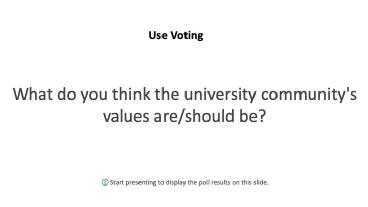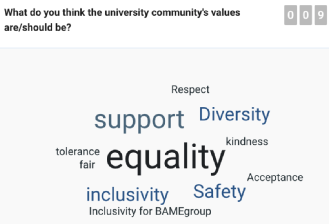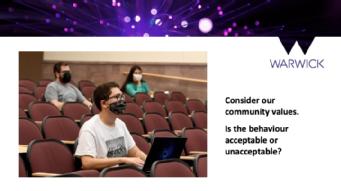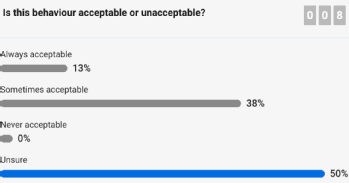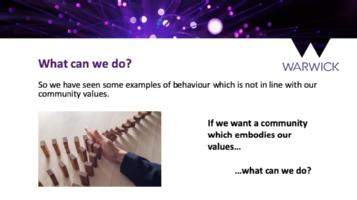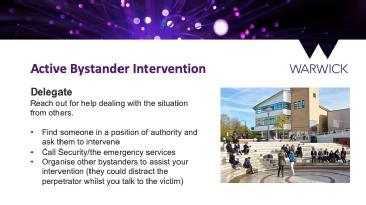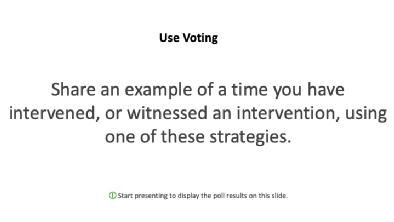Introduction to Active Bystander workshop booking form
Planning information:
This information is for invited colleagues with responsibilities for planning induction activities within their departments.
Aim of the workshop:
- This one-hour online workshop supports incoming students to explore what our community values look like in practice and how we might build a community that embodies those values through active bystander principles.
- The workshop is delivered by CVEP's team of experienced facilitators.
- Following the successful launch of the workshop last academic year, we now aim to offer the workshop in all departments to incoming students.
You commit to:
- Assigning a contact to liaise with us to check/ finalise planning (e.g. DSEP, Administrative Lead).
- Timetabling the workshop into Welcome Week or during Term 1 with expected attendance for students.
- Promoting the workshop to students (e.g. in your newsletters, welcome week comms) using the promotional materials we will provide (flexible and can be adapted as needed).
Other key information:
- Audience: Incoming (first-year) students and PGT students.
- Format: Interactive (activities and content were co-created with students).
- The number of workshops: We can offer a maximum of two workshops per department.
- Delivery method: Online.
- Length: One hour.
- Delivered by: Experienced facilitators from the CVEP team.
- Timings: Workshops should be delivered in either Welcome Week or during Term 1.
Your next step:
Complete this form.
We will then liaise with you to check and finalise the details.
We thank each department for their commitment and support for this important initiative.
Preview of the workshop slides:
|
Students are encouraged to vote on questions and submit comments/opinions via Vevox voting technology. Exploring social norms and seeing how others think is an important part of the Active Bystander approach. We've received feedback that students enjoy the interactive elements of the session. |
|
|
This slide shows how a previous (small) group of students responded when asked what they think the University's values should be. Facilitators used the word cloud to start a discussion about Warwick's existing guiding principles. |
|
|
Students are introduced (or re-introduced) to Warwick's guiding principles. Most students will have recently completed the Warwick Values Moodle and will start to link this activity with what they learnt from the Moodle. |
|
| Students will work review several video scenarios of everyday situations. We will discuss whether the behaviours in the situations are acceptable or unacceptable according to our shared community values. This may be the first time students start to recognise the impact of these everyday situations. |
|
| This slide shows how a previous (small) group of students voted on a particular scenario. Facilitators then used the results as the basis of a wider discussion about the scenario and the actions a potential active bystander could take. |
|
|
Students discuss what we can do as individuals in response to undesirable behaviours. The key message is that if we all challenge undesirable behaviours, those behaviours become reduced. We always flag the golden rule of the active bystander approach - only intervene when it is safe to do so. |
|
|
Facilitators introduce the five core strategies of the Active Bystander approach. This slide shows an example of what the 'delegate' strategy is. |
|
|
Students are encouraged to think about their own bystander experiences. There is no judgment from facilitators. This activity helps to raise awareness that we need to notice a situation is happening before we can intervene. Facilitators will support discussions and reflection about the enablers and barriers to effective and safe interventions. |
|

